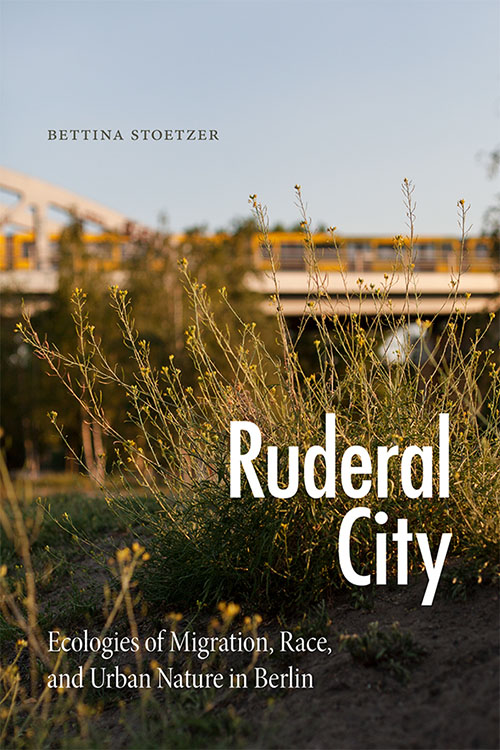Congratulations to Bettina Stoetzer on winning the 2023 Diana Forsythe Prize
for her book Ruderal City: Ecologies of Migration, Race, and Urban Nature in Berlin (Duke University Press, 2022)
Svetlana Borodina | CASTAC Co-Chair
September 28, 2023

2023 Diana Forsythe Prize Winners
Winner: Bettina Stoetzer, Ruderal City: Ecologies of Migration, Race, and Urban Nature in Berlin (Duke University Press, 2022).

Bettina Stoetzer’s Ruderal City is an imaginative and beautifully written ethnography of how Berlin’s forests, gardens, peripheries, and blasted landscapes and rubble fields (now obscured but not disappeared) have become, post-World War II and again post-1989, an uncanny home for heterogeneous lives and world-making. Ruderal City re-reads Berlin’s famous forests and gardens as spaces of exclusion, where refugees inhabit the uncanny ruins of the socialist built/forested landscape. It opens up a new analytic for understanding what kind of lives are enabled by the constitutive gaps and incoherence of governance and state attempts to manage the mobility of populations. And it shows how the continuing forces of colonial violence and racialization can be traced and sensed in both migrant experiences and in the environment and landscapes that European migration regimes generate. At the center of the analysis is “the ruderal,” referring to plants that thrive in disturbed environments. From its riveting first chapter on post-war Berlin as a “feral city” in which bombed-out rubble fields prove hospitable to a fascinating ruderal ecology, Stoetzer brilliantly weaves a path through multiple domains in which plants, gardens, and the work of tending unseen, marginal, or invisibilized spaces become central to our understanding of the city and of 20th and 21st century racialized nationalist formations.
Grounded deeply and thoughtfully in the methods and insights of feminist anthropology and STS, Indigenous studies, and critical studies of race, environment, migration, and cities, Ruderal City is an unexpected roadmap for the racialized environmental catastrophe of this moment, and a beautiful meditation on, as Stoetzer puts it, “the unruly, more-than-human alliances amid displacement and inhospitable environments” (240). The Diana Forsythe Prize celebrates work that “exemplifies the spirit of Diana Forsythe’s feminist anthropological research on work, science, or technology, including biomedicine.” This book does so in entirely original and generative ways.